Powerful Performance of Carmina Burana in the Spitfire Hall
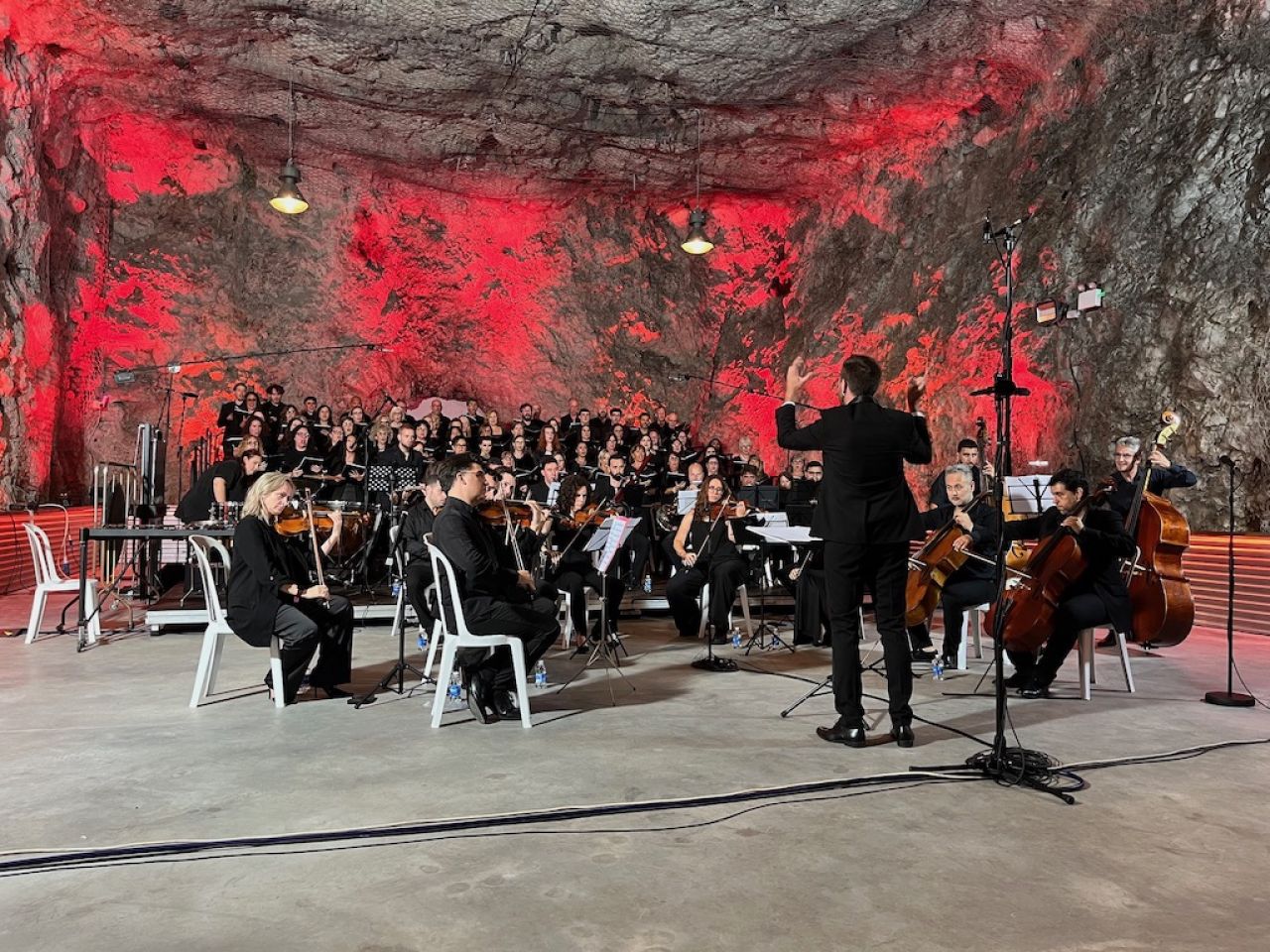
By Giordano Durante
Music enthusiasts enjoyed Carl Orff’s Carmina Burana in the relative cool of the Spitfire Hall in the World War Two Tunnels at the end of the hottest day of the year so far.
This ambitious performance brought together three choirs (Harmonics, the Chorus Insubrie University of Varese, Italy, and the Zyriab Choir), a small orchestra with a vast percussion section and three soloists (Hannah Drury, Anthony Roper de Almeida and Philip Borge McCarthy) to tackle the shifting tempos and thumping rhythms of Orff’s most popular work.
Yesterday evening’s performance was the result of many months of rehearsals and the coordination between the participants and the control exercised by conductor Michele Paccagnella were proof that this multi-movement cantata had been rigorously prepared.
Starting off with the unmistakable ‘O Fortuna’ opening, familiar from its overuse in films to accompany anything from momentous decisions to exorcisms, the approach yesterday evening invited those attending to appreciate, as if for the first time, the stunning vitality of Orff’s work. Although I’m used to hearing this movement played somewhat faster, Paccagnella’s interpretation, opting for a more magisterial pace, was also valid.
From the very first note, we entered the unique sound-world of Carl Orff; this is music that sounds medieval (as befits its texts) but that also has a thoroughly modern flavour thanks to its mechanical rhythms. It is a work that has one foot in the tradition of Gregorian chant and another in the neoclassicism of Stravinsky and other contemporaries.
Orff’s inspired use of an extensive percussion section is particularly interesting and I couldn’t keep my eyes off the timpanist and percussionist as they switched between cymbals, tam-tam, snare drum, triangle, glockenspiel and even, for one late movement, castanets, never missing a beat—they were the backbone of the orchestral team.
The second section ‘Primo Vere’, three songs about the joy of spring, showed Orff’s gentler side; the pastoral tones of ‘Veris leta facies’ / ‘the joyful face of spring’ were led by sensitive contributions from the woodwind and brass followed by Philip Borge McCarthy singing ‘Omnia Sol temperat’, virtually unaccompanied apart from sparse strings and some percussive taps. The section concluded with the playful brass fanfares of ‘Ecco gratum’, Paccagnella managing the tempo fluctuations well in a performance that was brimming with joy.
The next section, ‘Uf dem anger’ / ‘In the meadow’ started off with a short instrumental dance—a real romp for strings and flute—and then several songs in Latin and Middle High German. We must not underestimate the hard work put in by the choirs to perfect their pronunciation of these unfamiliar tongues. This section’s highlights were the bucolic ebullience of ‘Floret silva’, the dreamy woodwind and brass of ‘Chramer, gip die varwe mir’ punctuated by cow-bell sounds and the final pieces which featured countertenor Anthony Roper de Almeida.
The fourth section, titled ‘In Taberna’ / ‘In the Tavern’, kicked off with Philip singing ‘Estuans interius’—these are drinking songs, bold and woozy, and the local tenor was clearly enjoying this vigorous music. The next song, a more subdued, darker piece, was skilfully sung by Anthony. The conclusion of this section was ‘In taberna quando sumus’ / ‘When we are in the tavern’, almost entirely for male choir and involving pulsating rhythms that put me in mind of an oompah band.
There was a 15-minute interval after this. Although the work is often performed straight through because its cumulative power needs to grow uninterruptedly until the final reprise, I understand the need for a break for refreshment and comfort.
The performers returned with ‘The Court of Love’ section, a more peaceful and reflective collection of songs that saw the first contribution by soprano Hannah Drury who was particularly impressive in ‘Steatite puella’ and the soaring lines of the closing, mesmerising, ‘Dulcissime’. Other high points were the trio of Hannah, Philip and Anthony singing ‘Tempus eat iocondum’, its irrepressible high spirits accentuated by castanets.
The intense final section, culminating in a reprise of the ‘O Fortuna’ theme, was expertly managed by the conductor. That sense of tension followed by the inevitable release brought on by the return of the familiar opening music was a real jolt for the audience and no previous familiarity with the piece in recordings could have prepared us for the visceral pleasure of witnessing it live.
Although this tune bookends the piece, the attention to detail shown by all the performers throughout the intervening movements elevated Orff’s work beyond its use as demonic music—the work possesses much more variety than this; it is, above all, a work filled with secular exultation, an earthy, throbbing anthem to pleasure and life.
Once again, the Gibraltar Classical Music Society deserves praise for working to deliver such an ambitious programme. It is rare to encounter, in the local scene, music which is so demanding to perform and which requires such extensive orchestral and choral forces. They were aided by the Spitfire Hall’s fine acoustic too, which encouraged the appreciation of the finer textures of Orff’s score.
The performance is repeated tonight with tickets still available at www.buytickets.gi. Ticket price includes shuttle service to the tunnels from MidTown.
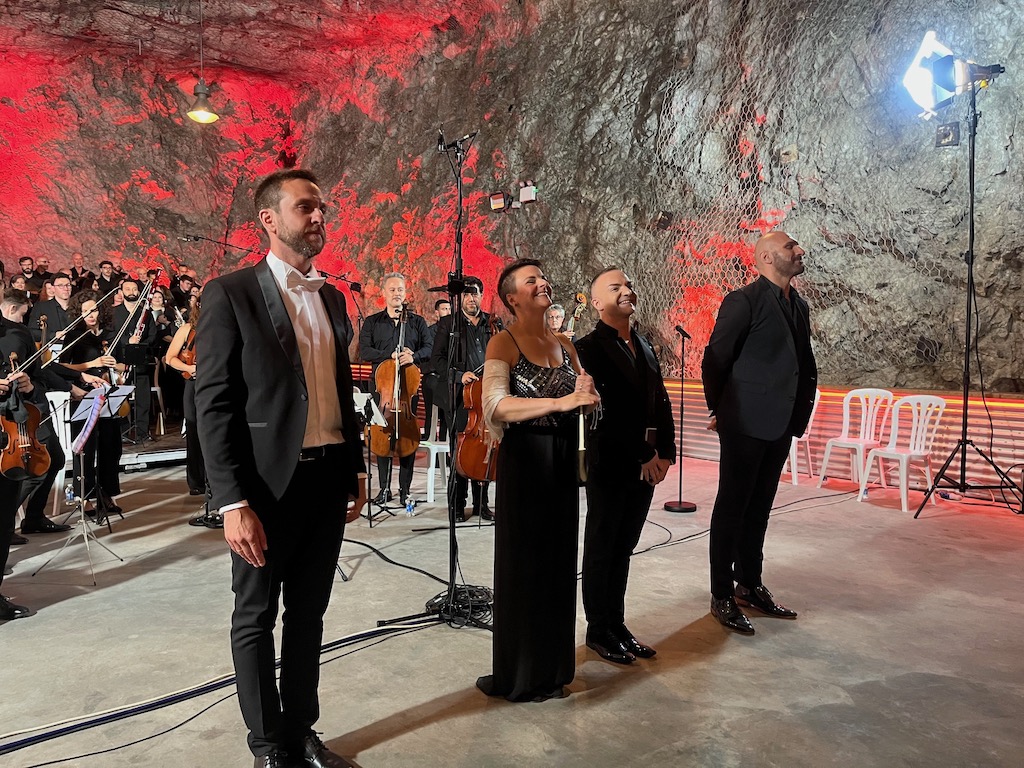
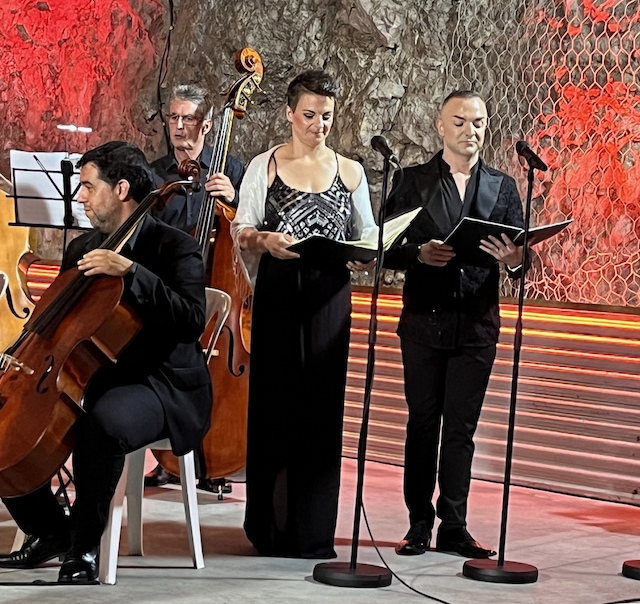
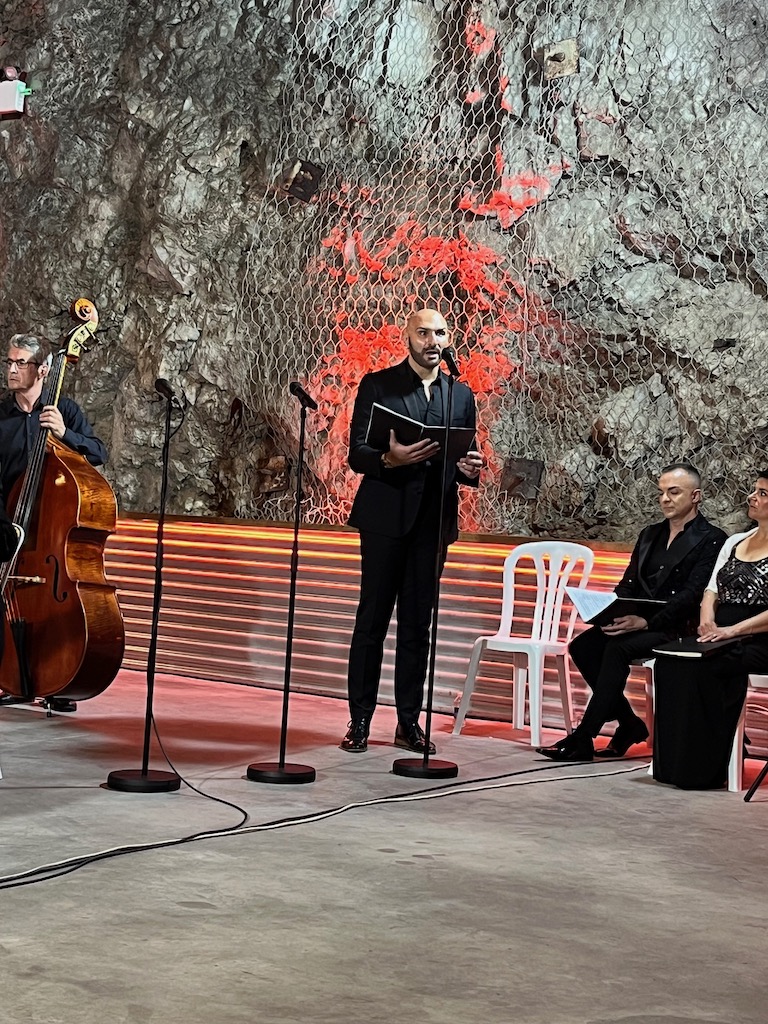
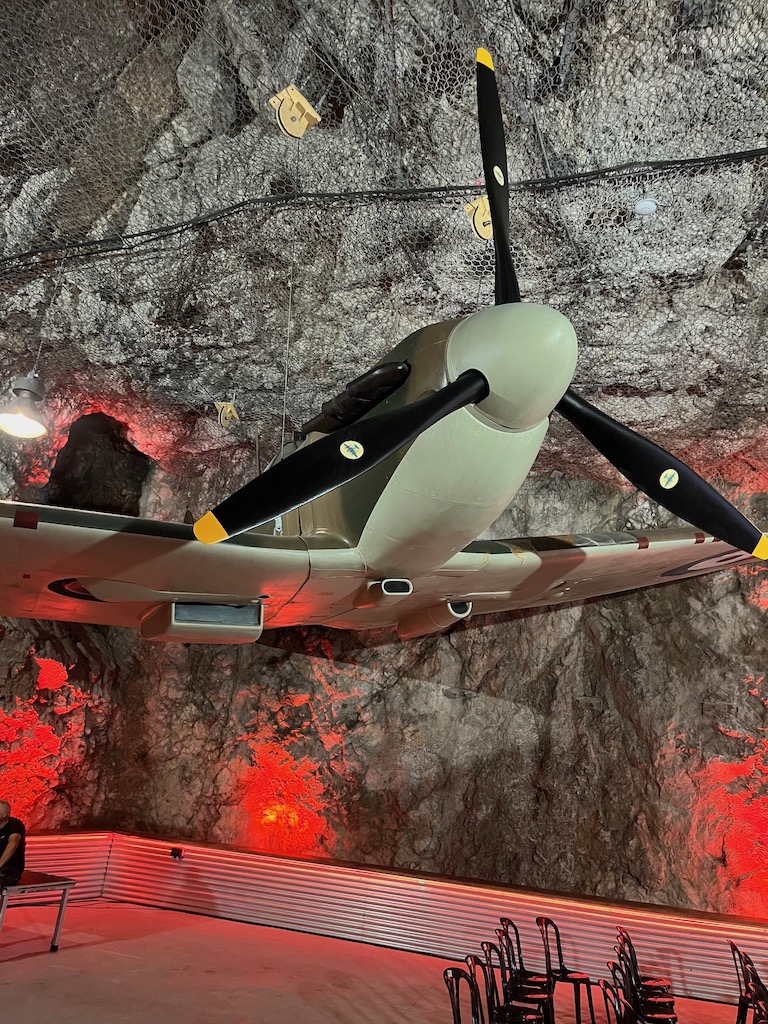
Latest News
- End The Disparity Between High-Cost GHA Contracts And Local Wage Stagnation Says Together Gibraltar
- Minister Cortes Attends St Mary’s University 175th Anniversary Service
- Ministry Of Equality’s Pride Conference A Resounding Success
- Government Conducts Emergency Response Exercise At Bleak House
- New Gibraltar-Based AI Marketing platform Zaturn Offers Free Trials
- Powerful Performance of Carmina Burana in the Spitfire Hall
- Man Sentenced to Six Years for Attempted Wounding with Intent
- Minister Santos Participates in Panel in CPA BIMR Conference
- GFIU Launches New E-Learning Module On Countering Ransomware Financing
- Minister Santos Holds Meeting With The Lived Experience Council



